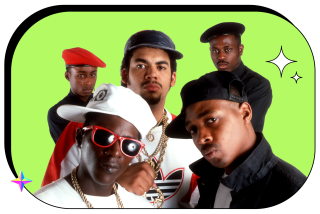Curbing That Anti-Video Rage
- Share via
Rage Against the Machine is finally entering the video age--and the hot L.A. band is bringing jailed American Indian activist Leonard Peltier with it.
In a typically anti-Establishment move by the defiant rap ‘n’ rock band, Rage refused to release a promotional video for its late-1992 debut album, arguing that traditional videos have nothing to do with message or art.
Yet the band is currently editing a video for the song “Freedom,” feeling they’ve finally found a valid way to take advantage of the medium.
In addition to showing the band, the video will consist of footage from “Incident at Oglala,” a documentary film about Peltier, who is serving a life sentence for the 1975 murder of two FBI agents in South Dakota. The film was produced by Robert Redford and directed by Michael Apted.
“The band didn’t want to make another commercial,” says the group’s manager, Warren Entner. “It had to be something that reflected their ideology. The injustice surrounding Leonard is of grave concern to the band.”
With sales of the debut album already at the 400,000 mark, thanks largely to the group’s strong showing on last summer’s “Lollapalooza” tour, a hit video could push sales past 1 million, industry insiders believe.
But Entner says that bigger sales is not the band’s goal in agreeing to the video.
Rage has already established a reputation for biting the hands that could potentially feed it. Group members were vocally critical of the “Lollapalooza” management over what the band saw as excessive profits on T-shirts and other merchandise. And leader Zack de la Rocha turned down the chance to do an interview with Rolling Stone recently.
“One of the things we ask ourselves is, ‘Do you lose the potency of the band when it starts to get commercialized?’ ” Entner says. “It’s a unique situation where you have these commercial opportunities that aren’t appropriate for the band.”
More to Read
The biggest entertainment stories
Get our big stories about Hollywood, film, television, music, arts, culture and more right in your inbox as soon as they publish.
You may occasionally receive promotional content from the Los Angeles Times.










